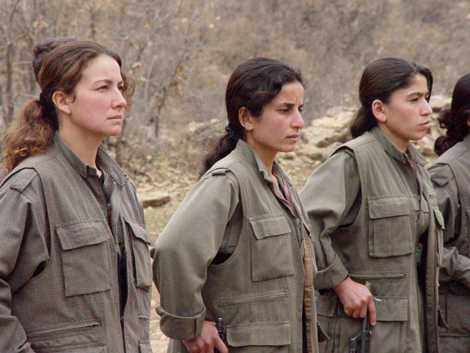Washington – Nearly a century after the Genocide, Turkish government is still seeking to identify and root out “Armenian separatism” inside Turkey, according to a U.S. diplomatic cable made available through Wikileaks and first published by Taraf newspaper.

Writing in December 2004, U.S. Charge in Turkey at the time Robert Deutsch related a conversation with a “long-term Embassy contact with deep experience in intel[igence] and national security analysis.”
Deutsch himself is a veteran State Department Middle East expert who following his Ankara posting serves as deputy coordinator for Iraq and later worked as senior advisor in the South and Central Asia Bureau of the State Department.
Ghost of Armenia
The unnamed Turkish source told the U.S. Embassy that as of late 2004 Turkish internal security forces (Jandarma) and its intelligence branch (JITEM) received “a steady stream of orders from Ankara to JITEM posts in the field to combat ‘Armenian separatism’” as part of the fight against Kurdish insurgency.
Deutsch notes that what he terms “paranoia” reflected “the Turkish State’s fear of history” considering that “only a handful of Armenians [were] left in the southeast” of Turkey after the Genocide.
But “Ankara was basing its suspicions on the meticulous population registry (nufus kutugu) of family lineage which, among other things, shows how many citizens — especially concentrated in certain regions of the east and southeast — actually have an Armenian background underneath their forebears’ voluntary or forced conversions or adoptions during the period when Armenians were being deported and murdered en masse by the Ottoman authorities and local Muslim bands.”
“The distant and suppressed Armenian connection is so pervasive that JITEM even came across a village imam with Armenian roots, our contact relayed.”
Deutsch adds that “in our own extensive travels throughout Anatolia, especially east of the Kizilirmak River [eastern half of the country – ed.], we have been repeatedly struck by (a) the common knowledge among ordinary citizens of what happened in 1915, a knowledge which most will readily share; and (b) the number of people with apparent Armenian features.”
Publicly, Turkish officials have off and on attempted to link Armenians and Kurdish insurgents.
Yusuf Halacoglu, former head of the Turkish Historical Society, claimed in August 2007 that many Kurds, particularly Kurdish Alevis, were originally ethnic Armenians.
Suspicion of Armenian “factor” in the insurgency is also reportedly shared to some extent by Prime Minister Recep Tayyip Erdogan.
Speaking in Washington in November 2007 Erdogan claimed that in addition to ethnic Kurds, the Kurdish Workers’ Party (PKK) had ethnic Armenian members. He did not elaborate.
Zigzagging rhetoric
Turkish media speculation has also linked JITEM and other Turkish national security entities with January 2007 murder of Turkish Armenian journalist Hrant Dink.
That murder was followed by public outpouring of sympathy for Armenians inside Turkey and Erdogan-led government appeared eager to improve its image on Armenian issue.
The following year Turkey accepted Armenia’s offer to negotiate normalization of relations, but that negotiations process moved in starts and sputters before stalling fully by the end of 2009.
Turkish government signals on Armenia have been mixed since.
On one hand, Turkish officials no longer hinder discussion of the Genocide and have encouraged and safeguarded April 24 commemorations inside Turkey.
Ankara has also paid for renovation of a former Armenian cathedral on Lake Van and for the first time in decades Turkish citizens of ethnic Armenian descent were allowed to join the Turkish state bureaucracy.
At the same time, Erdogan threatened to expel Armenian citizens working in Turkey, a threat that he repeated earlier this month. He also ordered demolition of Turkey-Armenia “friendship monument” in Kars, a step that may be esthetically justified but nevertheless sends a negative message.
Most significantly, since 2010 Turkey has stepped military cooperation with Azerbaijan, which has long openly threatened warfare against Armenia.
via Armenian Reporter:.



